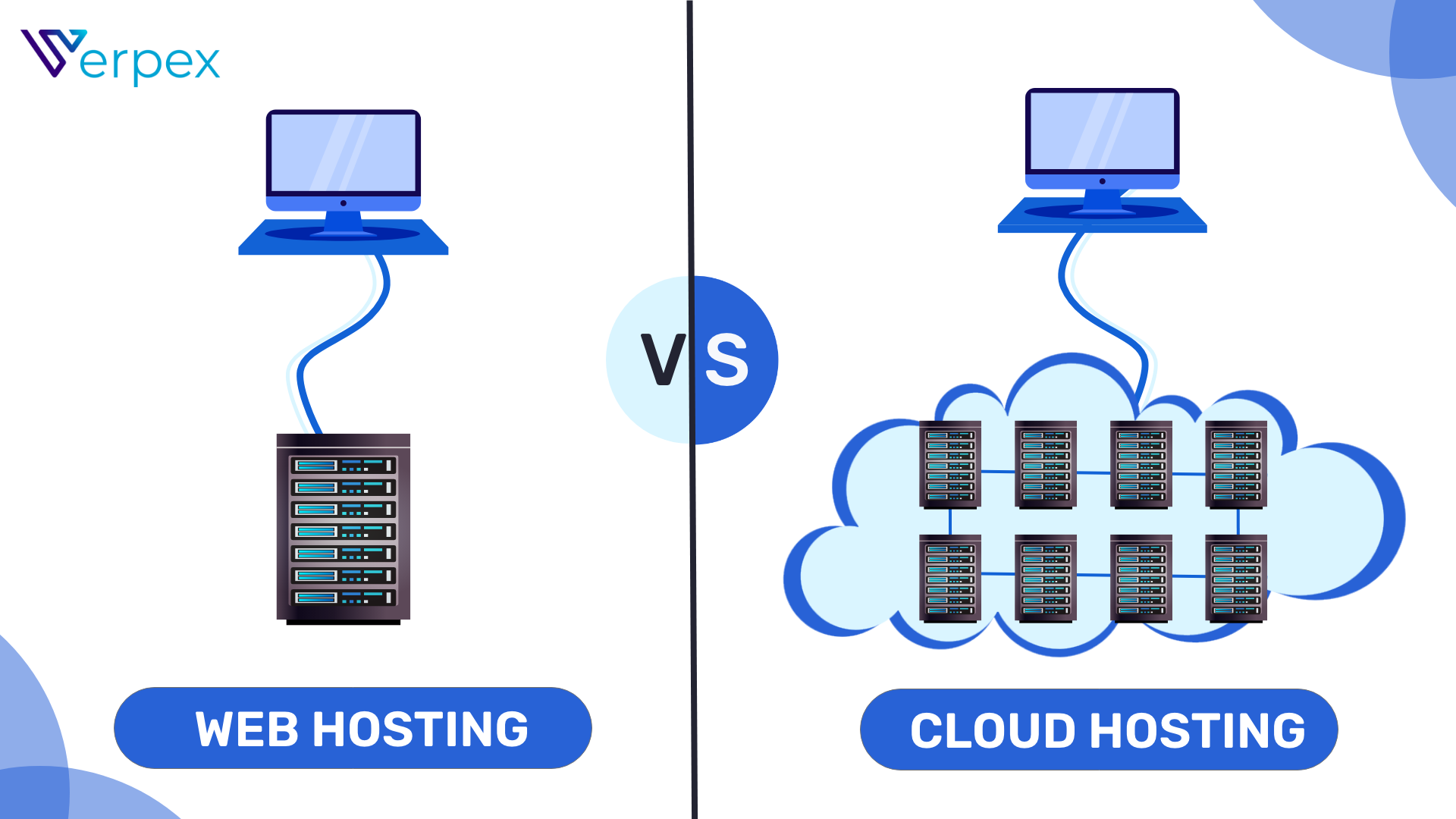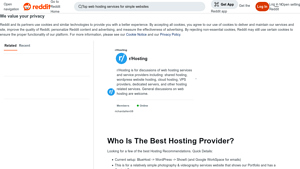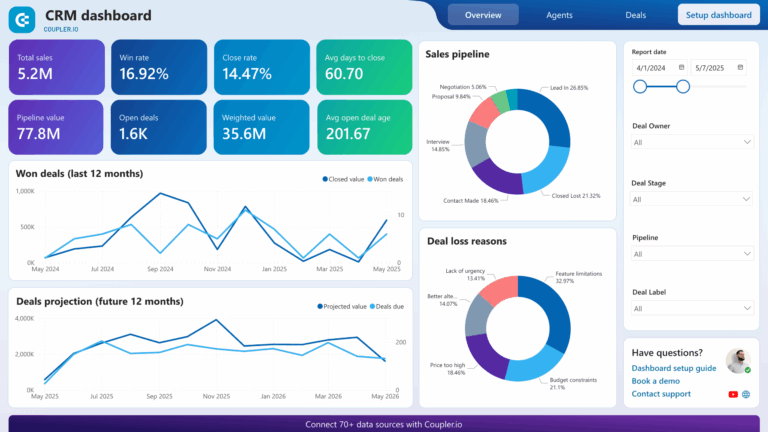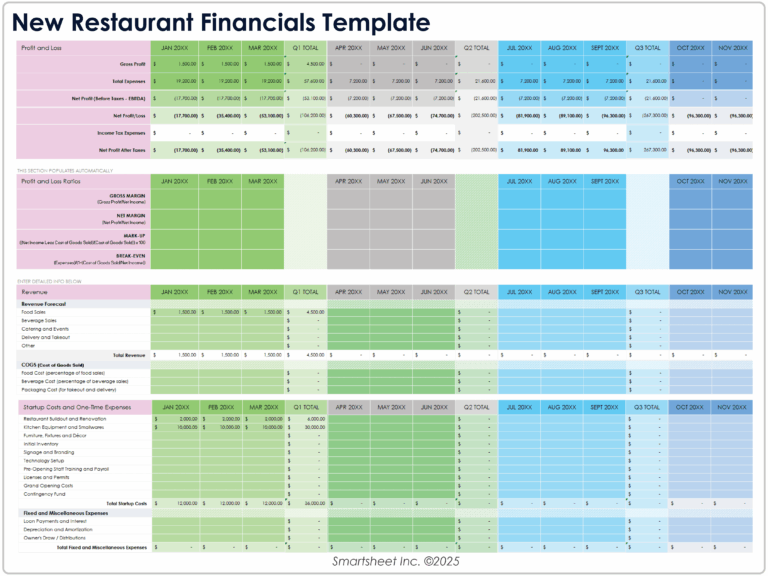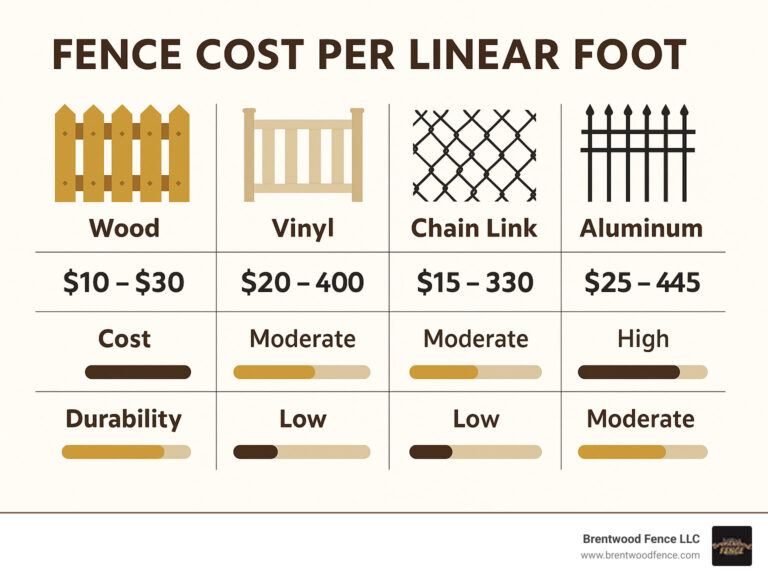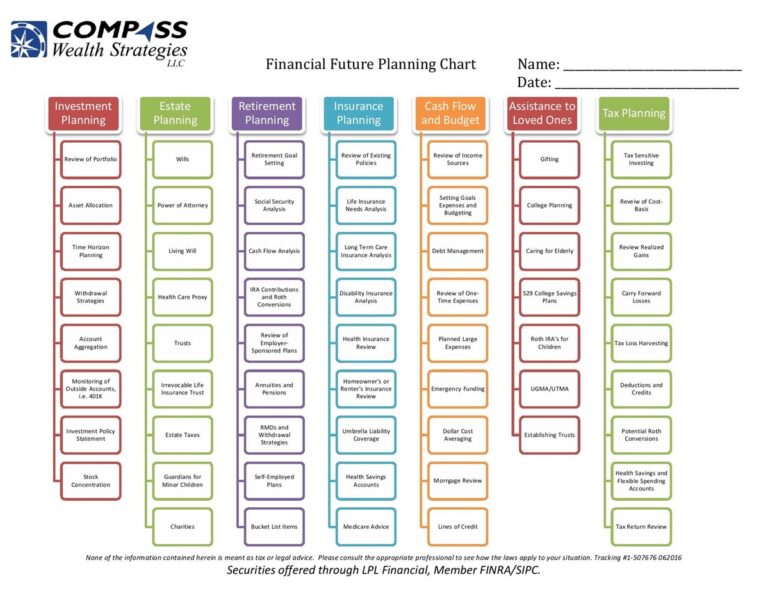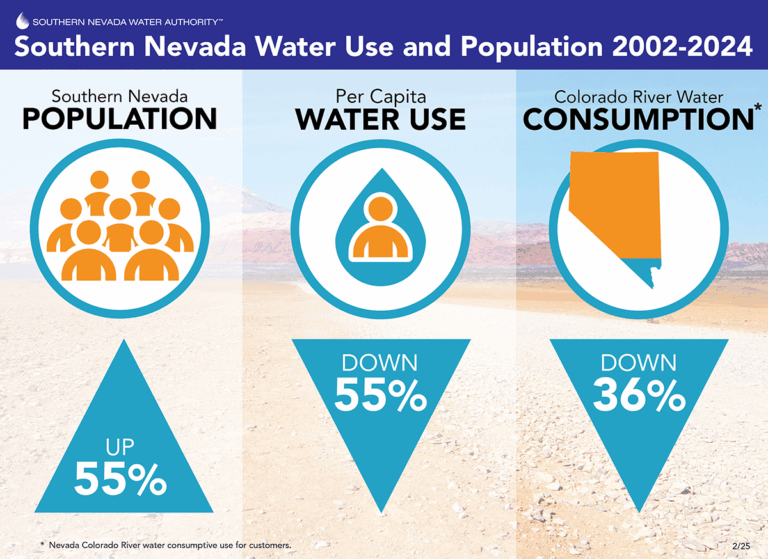Choosing a Hosting Services Provider: Our Top Picks for 2025
Choosing Your Digital Home: An Introduction to Web Hosting
Choosing the right web hosting service is a critical foundation for any successful website. Whether you’re a small business owner, a blogger, or a developer looking to launch your next project, the web host you choose will significantly impact your site’s performance, security, and overall success. However, with a plethora of options available, many users find themselves overwhelmed by the variety of hosting plans, features, and pricing structures. This confusion is understandable; different web hosts cater to different needs, and the right choice can vary based on your specific requirements.
Understanding the Landscape of Web Hosting
Web hosting is not a one-size-fits-all solution. There are various types of hosting services, including shared, VPS (Virtual Private Server), cloud, and dedicated hosting. Each option comes with its own set of advantages and disadvantages. Shared hosting is often the most affordable choice, making it appealing for beginners, but it may compromise on speed and performance due to resource sharing with other sites. On the other hand, VPS and dedicated hosting provide more power and flexibility but can be significantly more expensive. Understanding these differences is essential for making an informed choice.
Your Resource for Informed Decision-Making
The goal of this guide is to serve as a comprehensive resource for anyone looking to navigate the complex world of web hosting. We will break down the various hosting types, delve into the essential features to consider, and compare some of the top providers in the industry. By the end of this guide, you will have a clearer understanding of what to look for in a web host, which will empower you to make an informed decision tailored to your needs.
What to Expect
Throughout this guide, we will explore key factors such as ease of use, storage, bandwidth, security features, uptime guarantees, and customer support. We will also provide insights into pricing structures, helping you understand the long-term costs associated with each hosting option. With this knowledge, you’ll be better equipped to choose a web host that not only meets your immediate requirements but also scales with your growth.
Choosing the right web hosting service is one of the most important decisions you’ll make for your website. With the right information and guidance, you can establish a solid digital foundation that will support your online endeavors for years to come. Let’s embark on this journey together and find the perfect digital home for your website.
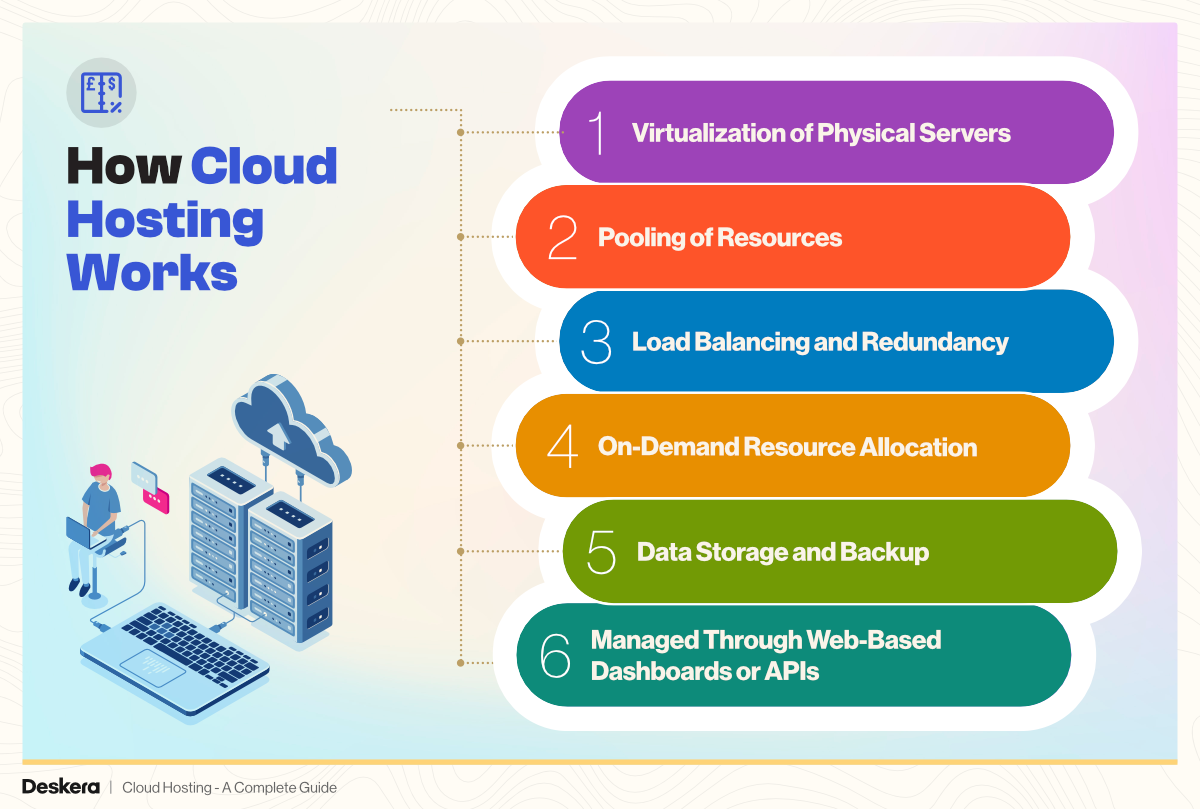
The Best Hosting Services Providers of 2025
5. Bluehost – Top Choice for WordPress Hosting!
In CNET’s review of the Best Web Hosting Services for 2025, the article evaluates top providers such as SiteGround and Hostinger, focusing on key features like performance, affordability, and specialized options like WordPress hosting. Tailored for both beginners and seasoned webmasters, the guide aims to help users make informed decisions based on extensive testing and comparative analysis of each service’s strengths and weaknesses.
- Website: cnet.com
- Company Age: Approx. 31 years (domain registered in 1994)
5. Bluehost – Top Choice for WordPress Hosting!
In the Reddit discussion titled “Who Is The Best Hosting Provider?”, users highlight TopHost and Marksystem as standout options for their exceptional value and competitive pricing. These hosting providers cater to budget-conscious individuals and small businesses looking for reliable services without compromising on quality. The conversation emphasizes the importance of affordability while still delivering satisfactory performance, making these hosts appealing to those seeking cost-effective solutions for their web hosting needs.
- Website: reddit.com
- Company Age: Approx. 20 years (domain registered in 2005)
5. Hostinger – Speedy and Secure Hosting for Your Online Success!
Hostinger stands out as a top choice for web hosting, offering a fast and secure platform ideal for individuals and small businesses. With competitive pricing and a focus on performance, Hostinger excels in providing reliable WordPress hosting and affordable plans. Its impressive speed and security features make it a strong contender for those seeking an efficient and cost-effective solution for their website needs.
- Website: hostinger.com
- Company Age: Approx. 23 years (domain registered in 2002)
20x Speed: Unleashing the Power of Hosting.com!
Hosting.com offers top-tier web hosting services designed for speed and reliability, boasting performance enhancements that deliver up to 20x faster loading times. Ideal for businesses and developers seeking high-performance solutions, it features premium hardware and round-the-clock global support. With a risk-free trial and a money-back guarantee, users can confidently explore its offerings, making it an attractive option for those prioritizing speed and customer service.
- Website: hosting.com
- Company Age: Approx. 29 years (domain registered in 1996)
7 Reasons Why Bluehost is the Ultimate Choice for WordPress Hosting
Bluehost is a versatile web hosting provider that excels in offering reliable cloud hosting solutions, boasting a 100% uptime guarantee. Designed for individuals and businesses looking to enhance their online presence, Bluehost is particularly well-suited for WordPress users, providing optimized plans that ensure fast loading times and seamless performance during traffic spikes. With affordable pricing and a user-friendly interface, it caters to both beginners and experienced developers alike.
- Website: bluehost.com
- Company Age: Approx. 23 years (domain registered in 2002)
5. Namecheap – Your Gateway to Affordable and Reliable Hosting!
Namecheap offers a range of affordable and reliable web hosting solutions tailored for both beginners and professionals. With a focus on budget-friendly plans, the service provides essential features like easy WordPress installation, robust performance, and excellent customer support. Ideal for individuals and small businesses seeking cost-effective hosting options, Namecheap ensures users can find the perfect plan to suit their needs without compromising on quality.
- Website: namecheap.com
What is Web Hosting? A Plain English Guide
Web hosting is a vital service that allows individuals and businesses to make their websites accessible on the internet. To understand web hosting better, let’s use an analogy: think of it like renting a space for your house. Just as you need a physical location to live, your website needs a space on the internet to exist.
What is a Server?
In our analogy, the server is akin to the actual building where your rented space is located. A server is a powerful computer that stores your website’s files, images, and data. When someone types your website address into their browser, that request is sent to the server where your website is hosted. The server then processes this request and sends the necessary files back to the user’s browser, displaying your website.
Servers are designed to be available 24/7, ensuring that anyone can access your website at any time, just like a building that is always open for visitors. There are different types of servers, including shared servers, where multiple websites share the same server resources, and dedicated servers, where an entire server is allocated to a single website. The type of server you choose can affect your website’s speed, reliability, and cost.
How Do Domains and Hosting Connect?
To navigate to your house, you need an address. Similarly, a domain name is the address that people use to find your website on the internet. A domain name is a unique identifier, like “www.yourbusiness.com,” that points to the server where your website is hosted. When someone enters your domain name in their web browser, it translates that name into an IP address, which is a numerical label assigned to each device connected to a computer network.
When you purchase a domain name, it’s like acquiring the address for your rented space. However, just having an address isn’t enough. You need to rent the space (web hosting) where your website files will be stored. The domain and hosting work together to ensure that when someone enters your domain name, they are directed to the right server where your website lives.
Why Do I Need a Hosting Service?
Imagine trying to invite friends over to your house without actually having a place to host them. You may have the perfect address, but without the physical space, your friends won’t be able to visit. This is the same concept with web hosting. Without a hosting service, your website cannot be published online, making it inaccessible to users.
There are several reasons why you need a hosting service:

-
Accessibility: Hosting services ensure that your website is accessible to anyone on the internet. Just like your rented space provides a location for your friends to visit, a hosting service provides the infrastructure for users to access your website.
-
Storage: Web hosting provides storage for all the files that make up your website, including text, images, and videos. Think of it as the furniture and belongings you keep in your rented space. Without adequate storage, your website won’t function properly.
-
Performance: A reliable hosting service ensures that your website loads quickly and runs smoothly. Just like a well-maintained building provides a comfortable environment, a good hosting provider uses quality servers and technology to enhance your website’s performance.
-
Security: Hosting services come with various security measures to protect your website from cyber threats. This is similar to having locks and security systems in your rented house to keep your belongings safe.
-
Support: Most hosting providers offer customer support to help you with any issues that arise. This is like having a landlord or property manager who assists you with maintenance and problems in your rented space.
-
Scalability: As your website grows, you may need more resources. Good hosting services allow you to upgrade your plan or add more storage and bandwidth, similar to moving to a bigger house when your needs change.
In conclusion, web hosting is an essential service for anyone looking to establish an online presence. By understanding the analogy of renting a space for a house, you can better grasp the importance of servers, domains, and hosting services in making your website accessible and functional on the internet. Whether you’re a small business owner, a blogger, or a developer, choosing the right web hosting service is crucial for your success online.
Types of Web Hosting: A Detailed Comparison
| Hosting Type | Best For | Performance | Price Range | Key Pro | Key Con |
|---|---|---|---|---|---|
| Shared Hosting | Beginners, small websites, blogs | Moderate; slower than others | $2 – $10/month | Cost-effective, easy to use | Limited resources, slower speeds |
| VPS Hosting | Growing websites, developers | High; customizable resources | $20 – $100/month | More control and performance | More expensive than shared hosting |
| Dedicated Server Hosting | Large businesses, high-traffic sites | Excellent; full server resources | $100 – $500+/month | Complete control, high performance | High cost, technical management needed |
| Cloud Hosting | Scalable websites, e-commerce | Very high; resources on-demand | $10 – $500+/month | Scalable, flexible resources | Can become costly, complexity |
| Managed WordPress Hosting | WordPress users, bloggers | High; optimized for WordPress | $10 – $50/month | Hassle-free management | More expensive than regular hosting |
Shared Hosting
What It Is
Shared hosting is a type of web hosting where multiple websites reside on a single server. This means that the server’s resources, such as CPU, RAM, and storage, are shared among all the websites hosted on that server. Shared hosting is typically the most affordable option and is suitable for small websites, blogs, and personal projects.
Who Should Use It
Shared hosting is ideal for beginners or those who are just starting their online presence. If you’re running a small blog, a portfolio site, or a simple business website with low to moderate traffic, shared hosting can be a cost-effective solution.
Pros
– Cost-effective: Shared hosting plans are generally the cheapest, making them accessible for individuals and small businesses.
– Ease of use: Most providers offer user-friendly control panels and one-click installations, making it easy to set up and manage your website.
– Maintenance handled: The hosting provider manages the server, including software updates, security patches, and backups.
Cons
– Limited resources: Since multiple websites share the same server resources, your website may experience slow load times during peak traffic.
– Security risks: If one website on the server is compromised, it could potentially affect the other sites hosted on that server.
– Less control: You may have limited control over server settings and configurations, which can be restrictive for advanced users.
VPS Hosting
What It Is
Virtual Private Server (VPS) hosting uses virtualization technology to provide dedicated resources on a shared server. Each VPS operates independently, giving users more control and flexibility compared to shared hosting.
Who Should Use It
VPS hosting is a great option for growing websites that require more resources and performance than shared hosting can provide. It’s also suitable for developers who need to customize server configurations for applications.
Pros
– Improved performance: VPS hosting offers faster load times and better reliability, as you have dedicated resources that are not shared with other users.
– Customization: Users have root access to their VPS, allowing for custom software installations and configurations.
– Scalability: You can easily upgrade your resources as your website grows without significant downtime.
Cons
– Higher cost: VPS hosting is more expensive than shared hosting, which may be a barrier for some users.
– Technical knowledge required: While many providers offer managed VPS solutions, you may still need some technical expertise to effectively manage your server.
Dedicated Server Hosting
What It Is
Dedicated server hosting provides an entire server solely for your website. This means that you have complete control over the server’s resources, configurations, and security.
Who Should Use It
Dedicated hosting is best suited for large businesses, e-commerce sites, or high-traffic websites that require maximum performance and security. It’s ideal for companies that expect substantial traffic and need to ensure their website remains operational.
Pros
– Full control: You can customize the server environment, install any software, and configure settings to meet your specific needs.
– High performance: Dedicated servers offer the best performance, ensuring fast load times and the ability to handle high traffic volumes.
– Enhanced security: With a dedicated server, you have more control over security measures, making it less vulnerable to attacks.
Cons
– High cost: Dedicated server hosting is the most expensive option, which may not be feasible for small businesses or personal projects.
– Management complexity: Managing a dedicated server requires technical knowledge, and you may need to hire IT professionals for maintenance and troubleshooting.
Cloud Hosting
What It Is
Cloud hosting uses a network of virtual servers that pull resources from various physical servers. This allows for flexible resource allocation based on demand, making it a highly scalable option.
Who Should Use It
Cloud hosting is ideal for websites that experience fluctuating traffic levels, such as e-commerce sites, applications, and businesses that expect growth. It’s also suitable for developers who need a scalable infrastructure.
Pros
– Scalability: You can easily scale your resources up or down based on traffic, ensuring optimal performance during peak times.
– Reliability: With multiple servers in the cloud, your website is less likely to go down due to server failure, as resources can be redistributed.
– Pay-as-you-go pricing: Many cloud hosting providers offer flexible pricing models based on resource usage, allowing you to pay only for what you need.
Cons
– Complexity: The architecture of cloud hosting can be complicated, requiring more technical knowledge to manage effectively.
– Cost variability: While cloud hosting can be cost-effective, unexpected spikes in traffic can lead to higher-than-expected bills.
Managed WordPress Hosting
What It Is
Managed WordPress hosting is a specialized hosting service optimized specifically for WordPress websites. This type of hosting includes services like automatic updates, backups, and enhanced security tailored for WordPress.
Who Should Use It
Managed WordPress hosting is perfect for bloggers, businesses, and anyone using WordPress who wants a hassle-free experience. It’s especially beneficial for users who may not have the technical expertise to manage their WordPress site effectively.
Pros
– Optimized performance: Managed WordPress hosts typically use server configurations specifically designed to enhance WordPress performance.
– Automatic updates and backups: Many managed hosts automatically update WordPress and its plugins, as well as perform regular backups, reducing the burden on the user.
– Expert support: Managed WordPress hosting often includes support from WordPress experts who can help with specific issues related to the platform.
Cons
– Higher cost: Managed WordPress hosting can be more expensive than regular shared hosting, making it less accessible for budget-conscious users.
– Limited to WordPress: This type of hosting is specifically tailored for WordPress, so if you plan to use other content management systems, it may not be suitable.
Conclusion
Choosing the right type of web hosting depends on your specific needs, budget, and technical expertise. Shared hosting is a great starting point for beginners, while VPS and dedicated hosting provide more control and performance for growing websites. Cloud hosting offers scalability for fluctuating traffic demands, and managed WordPress hosting simplifies the management of WordPress sites. Assess your requirements carefully to select the hosting solution that aligns with your goals and resources.
How to Choose a Hosting Provider: A 5-Point Buyer’s Guide
Performance and Uptime
When choosing a hosting provider, performance and uptime are paramount. Your website’s speed and availability directly affect user experience, search engine rankings, and overall success. Here’s what to consider:
Importance of Performance
A fast-loading website not only enhances user satisfaction but also impacts SEO. Google has indicated that page speed is a ranking factor, meaning that faster websites can rank higher in search results. Ideally, your site should load in under three seconds.
What to Look For
-
Uptime Guarantee: Aim for a host that offers at least a 99.9% uptime guarantee. This means your website could be down for no more than approximately 8.76 hours a year. Some providers go above and beyond, claiming 99.99% uptime.
-
Server Performance: Look for hosts that utilize high-performance servers and offer performance-enhancing technologies like content delivery networks (CDNs), caching, and SSD storage. These features can drastically improve load times.
-
Monitoring and Reporting: Check if the host provides uptime monitoring tools or reports. These insights can help you gauge their reliability and performance.
Customer Support
Effective customer support is crucial, especially for those new to web hosting or website management. Technical issues can arise at any time, and having reliable support can save you a lot of stress.
Importance of Customer Support
Good customer support can mean the difference between a minor issue and a major downtime crisis. The faster you can resolve problems, the less impact they have on your business.
What to Look For
-
Availability: Choose a hosting provider that offers 24/7 customer support via multiple channels (live chat, phone, email). This ensures you can get help whenever you need it.
-
Response Time: Research reviews or ask around to find out how quickly the support team responds to inquiries. A host with quick response times can significantly minimize downtime.
-
Support Resources: A comprehensive knowledge base, FAQs, and community forums can be very helpful. These resources empower you to troubleshoot minor issues independently.
Pricing and Renewal Rates
Understanding the pricing structure of hosting services is vital to avoid unexpected costs later on. While introductory prices may be enticing, renewal rates can vary significantly.
Importance of Pricing Transparency
Choosing a host based solely on low initial costs can lead to disappointment if renewal rates are exorbitant. It’s essential to know what you’re committing to long-term.
What to Look For
-
Introductory Offers vs. Renewal Rates: Be aware of how long the introductory pricing lasts and what the renewal rates will be. Hosts often provide steep discounts for the first term, which can increase significantly upon renewal.
-
Contract Length: Some hosts require you to commit to a longer-term contract (e.g., 2-4 years) to access the best prices. Ensure you’re comfortable with the duration before signing up.
-
Hidden Fees: Read the fine print to identify any potential hidden fees, such as charges for domain registration, SSL certificates, or migration services. A transparent pricing model is always preferable.
Security Features (SSL, Backups)
Security is non-negotiable when it comes to web hosting. A compromised website can lead to data loss, damaged reputation, and financial repercussions.
Importance of Security
With increasing cyber threats, having robust security measures in place is essential. Not only does this protect your site, but it also fosters trust among your users.
What to Look For
-
SSL Certificates: Ensure that the hosting provider includes SSL certificates, which encrypt data sent between the server and your users. This is especially crucial for e-commerce sites.
-
Automated Backups: Look for hosts that offer automated backups. Daily or weekly backups can be invaluable in recovering your site in case of data loss.
-
Security Features: Check for additional security measures such as firewalls, DDoS protection, and malware scanning. A host that prioritizes security will often have multiple layers of protection.
Scalability and Future Growth
As your website evolves, your hosting needs may change. Choosing a provider that allows for easy scalability can save you headaches down the line.
Importance of Scalability
If your website experiences sudden growth, you don’t want to be stuck with a hosting plan that can’t accommodate increased traffic or resource demands. Scalability ensures your site can grow without needing to migrate to a new host.
What to Look For
-
Variety of Hosting Plans: Opt for a provider that offers various hosting options (shared, VPS, dedicated, cloud) so you can upgrade as your needs change.
-
Resource Allocation: Ensure that the host allows for easy upgrades in terms of bandwidth, storage, and processing power. Some hosts may require you to switch plans entirely, while others allow you to adjust your current plan.
-
Migration Assistance: Check if the hosting provider offers migration assistance or tools to help you transition to a higher plan seamlessly. This service can be invaluable during periods of rapid growth.
Conclusion
Choosing the right hosting provider is a significant decision that can impact the success of your website. By carefully considering factors such as performance and uptime, customer support, pricing and renewal rates, security features, and scalability, you can find a provider that not only meets your current needs but also supports your growth in the future. Take your time to research and compare options, and don’t hesitate to reach out to customer support teams for any clarifications before making your decision.
Key Hosting Terms and Jargon Explained
cPanel
cPanel is a web-based control panel that simplifies the management of web hosting accounts. It provides a user-friendly interface that allows users to manage their websites, databases, email accounts, and more without needing advanced technical skills.
Key Features of cPanel:
- File Management: Users can upload, delete, and organize files and folders via an intuitive file manager.
- Domain Management: It allows you to manage domains, subdomains, and parked domains easily.
- Email Management: Users can create and manage email accounts associated with their domain.
- Database Management: cPanel provides tools to create and manage databases, typically using MySQL.
- Software Installation: Many cPanel hosts offer one-click installations for popular applications like WordPress, Joomla, and more.
SSL Certificate
An SSL (Secure Socket Layer) certificate is a digital certificate that authenticates the identity of a website and encrypts information sent to the server using SSL technology. This ensures that sensitive data, such as credit card numbers and personal information, is transmitted securely.
Importance of SSL Certificates:
- Data Protection: SSL encrypts data, making it unreadable to anyone who intercepts it during transmission.
- Trust and Credibility: Websites with SSL certificates display a padlock icon in the address bar, indicating to users that the site is secure.
- SEO Benefits: Search engines like Google favor secure websites, which can improve your site’s ranking in search results.
Bandwidth and Data Transfer
Bandwidth refers to the amount of data that can be transmitted over an internet connection in a given amount of time, typically measured in megabits per second (Mbps). Data transfer, on the other hand, refers to the total amount of data sent and received by your website within a specific period, usually measured monthly.
Understanding Bandwidth and Data Transfer:
- Monthly Limits: Web hosting plans often come with a set bandwidth limit, which dictates how much data can be transferred each month. Exceeding this limit may result in additional charges or throttled speeds.
- Impact on Performance: Higher bandwidth means your website can handle more visitors simultaneously without slowing down, which is crucial for high-traffic sites.
- Shared vs. Dedicated Bandwidth: In shared hosting, bandwidth is shared among multiple websites, which can lead to slower performance during peak times. Dedicated bandwidth ensures that your site has a guaranteed amount of data transfer available.
Storage (SSD vs. HDD)
Storage refers to the space available on a server to store your website’s files, databases, and other content. The type of storage can significantly affect the performance of your website.
SSD (Solid State Drive):
- Speed: SSDs are faster than traditional HDDs, providing quicker access to data, which results in faster loading times for your website.
- Reliability: SSDs have no moving parts, making them less prone to mechanical failure compared to HDDs.
- Cost: SSDs are generally more expensive than HDDs, but the performance benefits often justify the cost for many users.
HDD (Hard Disk Drive):
- Capacity: HDDs typically offer more storage space for a lower cost, making them suitable for larger files.
- Speed: They are slower than SSDs, which can lead to longer loading times for your website.
- Use Cases: HDDs are often used for backup storage or less performance-critical applications.
Domain Name System (DNS)
The Domain Name System (DNS) is a hierarchical system that translates human-readable domain names (like www.example.com) into IP addresses (like 192.0.2.1) that computers use to identify each other on the network.
How DNS Works:
- Domain Registration: When you register a domain, it is added to the DNS records, which are maintained by DNS servers.
- Name Resolution: When a user types a domain name in their browser, the DNS server looks up the corresponding IP address and directs the user’s request to the appropriate web server.
- DNS Records: Common types of DNS records include A records (which map a domain to an IP address), MX records (for email servers), and CNAME records (which alias one domain to another).
Uptime
Uptime refers to the amount of time that a website is operational and accessible to users. It is typically expressed as a percentage of total time over a given period, such as a month or year.
Importance of Uptime:
- Reliability: A high uptime percentage (e.g., 99.9%) indicates that a web hosting service is reliable and that your website is likely to be available to visitors most of the time.
- Impact on Business: Downtime can lead to lost revenue, reduced customer trust, and lower search engine rankings. Ensuring high uptime is crucial for businesses that rely on their online presence.
- Monitoring Tools: Many web hosts provide uptime monitoring tools that allow you to track the performance and availability of your website over time.
Understanding these key hosting terms will empower you to make informed decisions as you embark on your web hosting journey, whether you are a small business owner, a blogger, or a developer.
Frequently Asked Questions (FAQs)
1. Can I host my own website?
Yes, you can host your own website by setting up a server at your home or using your own hardware. However, this option requires technical knowledge and ongoing maintenance, including ensuring security, managing uptime, and handling backups. Most small business owners and bloggers prefer using a web hosting service to avoid these complexities and ensure reliable performance.
2. How much should I pay for hosting?
The cost of web hosting varies widely depending on the type of hosting you choose and the features you need. Shared hosting can start as low as $3 to $10 per month, while VPS hosting typically ranges from $20 to $100 per month. Dedicated hosting plans can cost $100 or more per month. It’s essential to consider not just the initial price but also renewal rates, which can increase significantly after the first term.
3. What’s the difference between a domain and hosting?
A domain name is your website’s address on the internet (e.g., www.yourwebsite.com), while web hosting is the service that stores your website’s files and makes them accessible on the internet. You need both to have a functioning website: the domain directs visitors to your site, and the hosting provides the server space to store your site’s content.
4. What types of web hosting are available?
There are several types of web hosting services, including:
– Shared Hosting: Multiple websites share the same server resources, making it the most affordable option.
– VPS Hosting: A virtual private server offers more resources and control than shared hosting, ideal for growing websites.
– Dedicated Hosting: You have an entire server to yourself, providing maximum performance and control, suitable for large businesses.
– Cloud Hosting: Your website is hosted on a network of servers, offering scalability and flexibility.
– Managed WordPress Hosting: Specifically optimized for WordPress sites, this service handles updates and security for you.
5. How do I choose the right hosting provider?
When selecting a web hosting provider, consider factors such as:
– Performance: Look for uptime guarantees (99.9% is standard) and fast loading speeds.
– Support: Ensure they offer 24/7 customer support via multiple channels (live chat, phone, email).
– Security Features: Look for SSL certificates, firewalls, DDoS protection, and regular backups.
– Scalability: Choose a host that can grow with your business, offering upgrade options as your needs increase.
– Pricing: Compare initial and renewal rates, as well as any additional fees for features or services.
6. Is it necessary to have a secure socket layer (SSL) certificate?
Yes, an SSL certificate is essential for securing data transferred between your website and its visitors. It encrypts sensitive information, such as login credentials and payment details, making it harder for attackers to intercept. Additionally, many web browsers label sites without SSL as “not secure,” which can deter visitors. Most reputable hosting providers offer free SSL certificates.
7. What is bandwidth, and why does it matter?
Bandwidth refers to the amount of data that can be transferred between your website and its visitors over a specific period, usually measured monthly. It affects how many visitors your site can handle simultaneously and the overall performance during peak traffic. If you exceed your bandwidth limit, your site may slow down or even go offline until the next billing cycle.
8. Can I switch hosting providers later?
Yes, you can switch hosting providers at any time. However, the process involves backing up your website data, transferring files to the new host, and updating your domain’s DNS settings. Many hosting companies offer migration services to help ease this transition, but it’s important to plan the switch carefully to minimize downtime and ensure all your data is transferred correctly.
Conclusion: Making Your Final Decision
Understanding Your Unique Needs
Choosing the best web hosting service for your website is not a one-size-fits-all decision. The ideal host for you will largely depend on your specific requirements, such as your budget, expected traffic, and technical skills. For instance, if you’re a small business owner looking to establish a robust online presence, you may prioritize reliability and customer support. Conversely, if you’re a developer or a tech-savvy individual, you might seek out more flexible plans that allow for greater customization and control.
Key Factors to Evaluate
When making your final decision, consider the following critical factors:
-
Customer Support: Reliable customer support can be a lifesaver. Look for hosts that offer multiple support channels, including live chat, email, and phone support. A responsive and knowledgeable support team can help you resolve issues quickly and efficiently.
-
Uptime Guarantee: Your website’s availability is paramount. Aim for a host that provides at least a 99.9% uptime guarantee. This ensures that your website remains accessible to visitors, which is crucial for both user experience and search engine rankings.
-
Scalability: As your website grows, your hosting needs may change. Opt for a host that allows you to easily upgrade or modify your plan as your traffic increases or your website evolves. Scalability ensures that your hosting service can grow alongside your ambitions.
Take the Next Step
Now that you have a clearer understanding of what to look for in a web hosting service, it’s time to take action. Whether you’re launching a blog, an e-commerce site, or a portfolio, you can start your project with confidence. Do thorough research, compare options, and choose the hosting provider that aligns best with your goals. Remember, the right host can significantly impact your website’s performance and your overall online success. Happy hosting!
Important Disclaimer
⚠️ Important Disclaimer
The information and reviews in this guide are for educational purposes, based on publicly available data and our own analysis. We are not affiliated with any hosting providers mentioned. Features, pricing, and performance change frequently. Always conduct your own research and check the provider’s official website before making a purchase.
